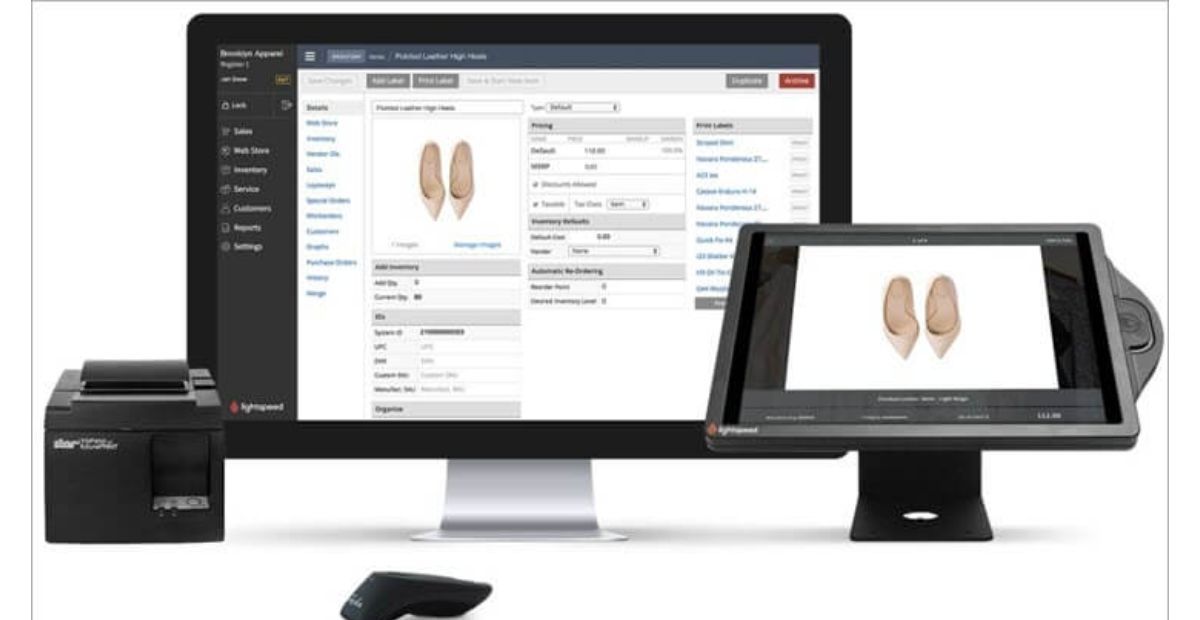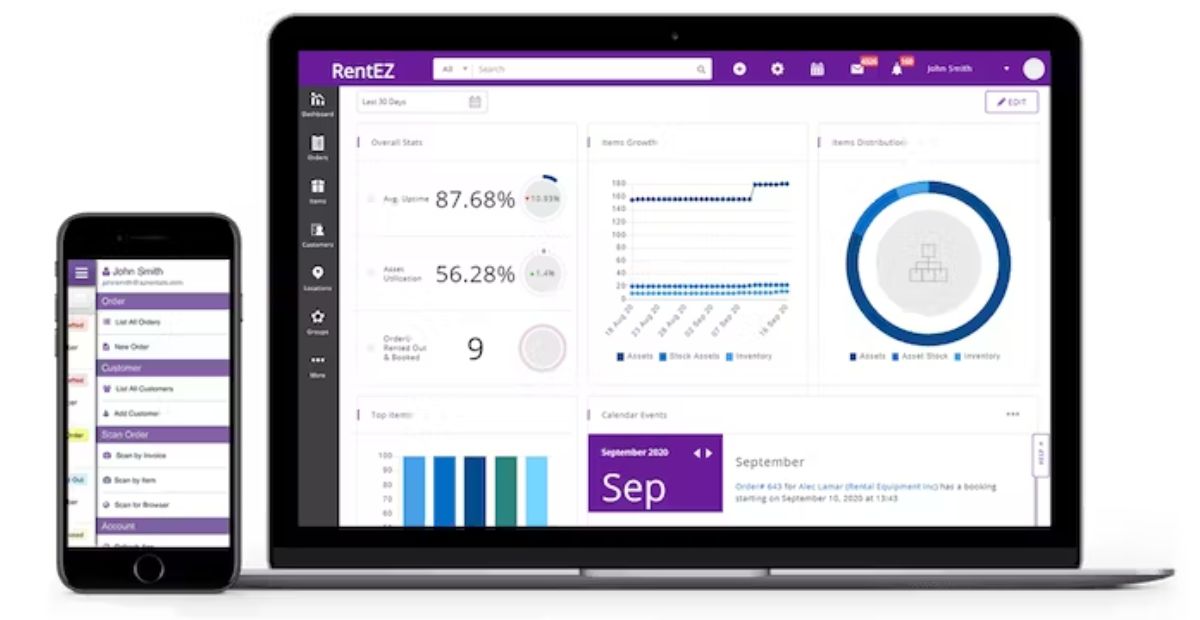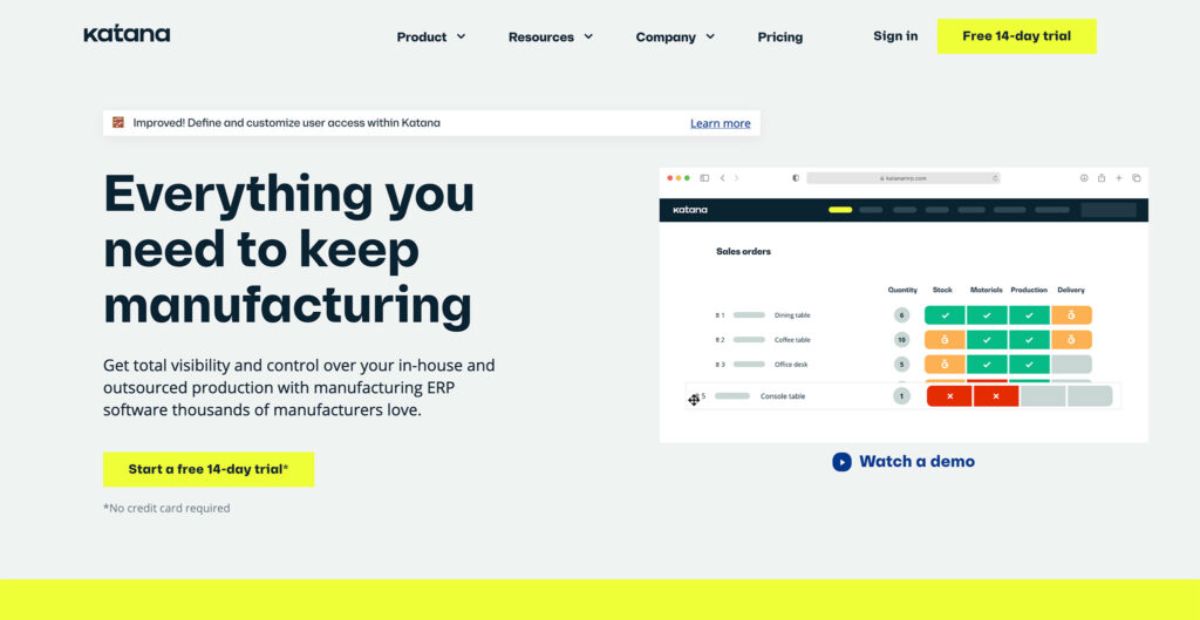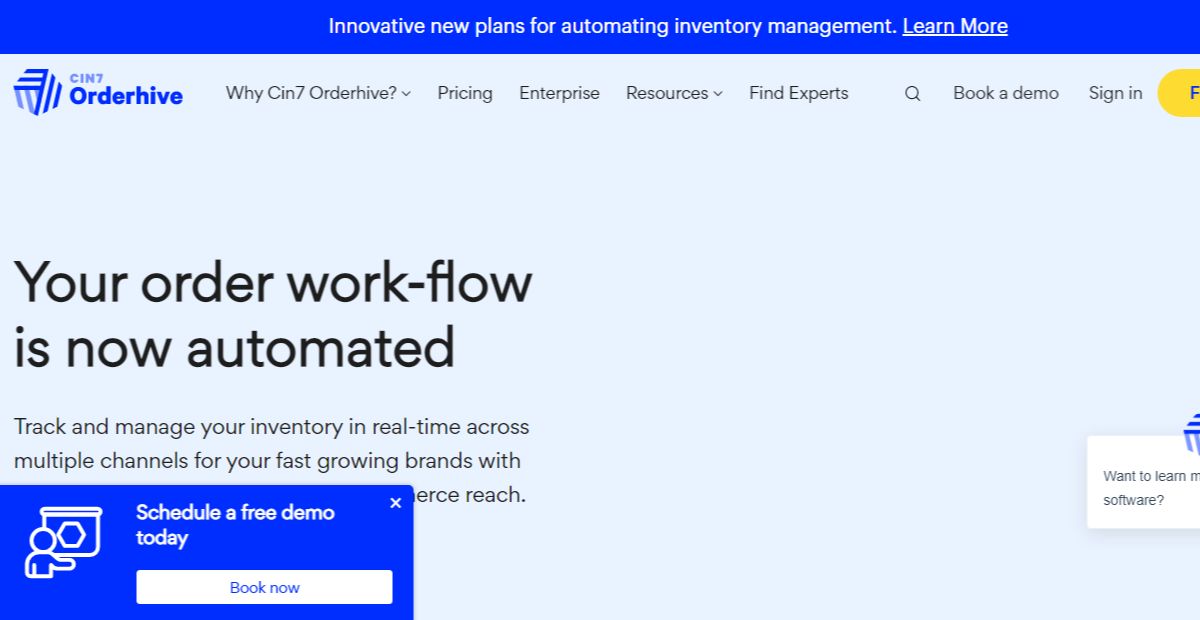Juggling inventory can be a daunting task for small businesses. In fact, 43% of small businesses either do not track their inventory or use manual methods.
Our guide on the “11 Best Inventory Management Software For Small Businesses In 2023″ will help simplify this process and boost your efficiency.
Read on, let’s declutter your warehouse together!
Table of Contents
Key Takeaways
- Small businesses can greatly benefit from using inventory management software to streamline their operations and boost efficiency.
- When choosing the best inventory management software for your small business, consider factors such as your business type and size, specific inventory needs, integration capabilities, scalability and growth potential, and budget constraints.
- The top 11 inventory management software options for small businesses in 2023 include Lightspeed Retail, Zoho Inventory, EZRentOut, Square, Katana, Agiliron, and Odoo. These options offer a range of features such as stock tracking, order management automation, real-time updates, and reporting tools. They also provide seamless integration with other essential tools like accounting systems and eCommerce platforms.
- Investing in the right inventory management software can contribute to the growth and success of your small business by improving efficiency and control over your inventory processes.
How to Choose the Best Inventory Management Software for Small Businesses
To choose the best inventory management software for your small business, consider your business type and size, determine your specific inventory needs, look for integration capabilities, evaluate scalability and growth potential, and set a budget.
● Consider your business type and size
Understanding your business type and size is an essential step in choosing the right inventory management software. Different industries have unique needs, from a retail store dealing with hundreds of SKUs to a manufacturing business tracking raw materials and finished goods.
The same applies to the size of your venture: A small boutique may need less complex functions compared to a growing e-commerce enterprise.
Some software caters specifically to certain kinds of businesses or those at specific growth stages, so it’s vital you pick a solution that matches your operation model and level.
Consider this carefully before making an investment; it saves time, and resources, and ensures seamless integration into your current operations.
● Determine your specific inventory needs
As a small business owner, understanding your unique inventory needs is of utmost importance in selecting the ideal management software.
Let’s say you run a retail store with numerous product lines; it would be beneficial to select an inventory system that can handle diverse stock types and volumes.
Similarly, if your business relies on seasonal sales, having software capable of analyzing past trends for future predictions might be crucial.
Inventory needs also encompass order tracking capabilities and real-time updates – particularly vital for businesses dealing with perishable goods or fast-moving consumer items.
Your chosen inventory control software should streamline not only stock monitoring but also critical elements like supplier management, order fulfillment, and returns handling.
Emphasize features that directly align with your operational requirements for effective inventory management solutions tailored to your specific business type and size.
● Look for integration capabilities
In the digital age where businesses operate on multiple platforms, your inventory management software’s ability to seamlessly integrate with other systems is vital. This can range from accounting and eCommerce platforms to barcode scanners and point of sale (POS) systems.
For instance, a cloud-based inventory management software that integrates with your online store helps streamline selling across numerous channels by automatically updating stock levels as sales are made.
Thus, preventing overselling or underselling scenarios while saving time in manual data entry. Selecting an inventory control software that syncs well with existing tools does not disrupt your small business operations but enhances productivity and efficiency instead.
● Evaluate the scalability and growth potential
To ensure the long-term success of your small business, it’s crucial to consider the scalability and growth potential of any inventory management software you choose. This means looking for a solution that can easily adapt as your business expands and handles increased inventory demands.
You’ll want a system that can handle higher transaction volumes, accommodate additional users, integrate with other software or platforms, and provide advanced reporting capabilities.
By evaluating scalability and growth potential upfront, you can avoid the hassle of switching systems down the line when your business outgrows its current software.
● Set a budget
As a small business owner, it’s important to set a budget when choosing inventory management software for your business. By having a clear budget in mind, you can narrow down your options and find a solution that fits within your financial capabilities.
Consider the costs associated with each software, such as monthly subscriptions or one-time fees, as well as any additional charges for features or integrations.
Keep in mind that while free inventory management software may seem like an attractive option, it may lack the advanced features and scalability that your growing business needs.
By setting a budget and being mindful of your financial constraints, you can make an informed decision on the best inventory management software for your small business in 2023.
11 Best Inventory Management Software for Small Businesses in 2023
Discover the top 11 inventory management software options for small businesses in 2023.
#1. Lightspeed Retail

Lightspeed Retail is one of the best inventory management software options for small businesses in 2023. It offers a comprehensive set of features that can help you streamline your inventory control processes and boost efficiency.
With Lightspeed Retail, you can easily track and manage your stock levels, automate reordering, and generate detailed reports to gain insights into your business performance.
This cloud-based software also integrates seamlessly with other essential tools like accounting systems, eCommerce platforms, and point-of-sale systems, allowing you to have a centralized view of your inventory across different channels.
Additionally, Lightspeed Retail offers user-friendly interfaces and intuitive navigation, making it easy for small business owners to get up and running quickly without extensive technical knowledge or training requirements.
#2. Zoho Inventory
Zoho Inventory is a top-notch inventory management software that offers small businesses an efficient and streamlined solution. With Zoho Inventory, you can easily track stock levels, manage orders, and automate various tasks to save time and reduce errors.
This cloud-based software allows you to access your inventory data from anywhere at any time, making it convenient for business owners on the go. The integrated barcode system ensures accurate tracking of products throughout the supply chain.
In addition, Zoho Inventory provides insightful reports and analytics to help make informed decisions about your inventory. Its user-friendly interface makes it easy to navigate and customize according to your specific business needs.
#3. EZRentOut

EZRentOut is a top inventory management software for small businesses in 2023. It provides an easy-to-use platform that allows you to efficiently track and manage your inventory. With features like barcode scanning, you can quickly add items to your system and keep accurate records of stock levels.
The software also offers integration capabilities, allowing you to sync data with other systems such as accounting or e-commerce platforms. EZRentOut is scalable, so it can grow with your business as your needs change.
Plus, it offers affordable pricing options that fit within the budget of small businesses. Overall, EZRentOut is a reliable and efficient inventory management tool that can help streamline operations for small businesses in 2023.
#4. Square
Square is one of the best inventory management software options for small businesses in 2023. It offers a range of features that can help you effectively manage your inventory and streamline your operations.
With Square, you can easily track stock levels, set up automatic reorder points, and receive low-stock alerts to ensure you never run out of essential items. The software also provides real-time reports and analytics, allowing you to gain valuable insights into your inventory performance.
One of the standout features of Square is its integration capabilities. It seamlessly integrates with other Square tools such as point-of-sale systems and payment processing, making it easier than ever to manage all aspects of your business from one convenient platform.
Additionally, Square offers user-friendly mobile apps that allow you to access and update your inventory on the go.
Square’s pricing structure is flexible and affordable, offering different plans tailored to fit the needs of small businesses. Whether you’re just starting out or experiencing rapid growth, Square has options that will accommodate your budget.
#5. Katana

Katana is a top choice for small business owners looking for efficient and user-friendly inventory management software. With its intuitive interface and powerful features, Katana helps you streamline your operations and stay in control of your inventory.
This cloud-based software allows you to easily track stock levels, manage orders, and automate reordering processes. One of the standout features of Katana is its real-time production planning tool, which enables you to optimize your manufacturing process and ensure smooth workflow.
Additionally, with its seamless integration capabilities, Katana can be easily integrated with other essential business tools such as e-commerce platforms and accounting software. The pricing plans are flexible to cater to businesses of all sizes and budget constraints.
#6. Agiliron
Agiliron is another top inventory management software option for small businesses. With its user-friendly interface and robust features, Agiliron can help streamline your inventory control process.
It offers real-time visibility into stock levels, allowing you to track and manage your inventory more efficiently. The software also integrates with popular eCommerce platforms like Shopify and WooCommerce, making it easier to sync your online sales with inventory updates.
Additionally, Agiliron provides powerful reporting tools that give you valuable insights into sales trends, supplier performance, and overall business analytics.
With its affordable pricing plans and scalable solutions, Agiliron is a great choice for small businesses looking to optimize their inventory management processes without breaking the bank or sacrificing functionality.
#7. Odoo
Odoo is a powerful inventory management software that offers a wide range of features for small businesses. With Odoo, you can easily track and manage your inventory, streamline your order fulfillment process, and keep accurate records of stock levels.
One of the key benefits of using Odoo is its scalability, allowing you to start with basic inventory management tools and gradually add on additional modules as your business grows.
This software also provides integration capabilities with other business applications such as accounting and CRM systems, making it easy to consolidate all your operations in one platform.
Overall, Odoo is an efficient and cost-effective solution for small businesses looking to optimize their inventory management processes.
#8. Cin7 Orderhive

Cin7 Orderhive is a top-notch inventory management software designed specifically for small businesses. It offers a multitude of features that can streamline your inventory control processes and help you stay on top of your stock levels.
With Cin7 Orderhive, you can easily track and manage items across multiple channels, whether it’s in-store or online.
One of the key benefits of using Cin7 Orderhive is its user-friendly interface. Even if you’re not tech-savvy, this software makes it incredibly easy to navigate and understand.
You’ll have no trouble adding products, setting up reorder points, or generating reports to gain valuable insights into your sales performance.
Another standout feature of Cin7 Orderhive is its integration capabilities. This software seamlessly connects with popular e-commerce platforms like Shopify and WooCommerce, as well as accounting tools such as QuickBooks and Xero.
This means less manual data entry and more time saved for other important aspects of running your business.
Moreover, Cin7 Orderhive offers a mobile app that allows you to access real-time information about your inventory from anywhere at any time. Whether you’re in the office or on the go, you can keep an eye on stock levels, generate purchase orders, and fulfill customer orders effortlessly.
#9. MarketMan
MarketMan is a top inventory management software for small businesses in 2023. It offers a wide range of features and benefits that can help streamline your business operations.
With MarketMan, you can easily track your inventory levels, manage orders and suppliers, and generate detailed reports to gain insights into your business performance.
One of the standout features of MarketMan is its user-friendly interface, which makes it easy for small business owners to navigate and use the software efficiently.
Additionally, MarketMan provides integration capabilities with other popular platforms such as QuickBooks, making it even more convenient to manage your inventory and finances in one place.
Whether you run a restaurant, retail store or any other small business that requires efficient inventory management, MarketMan has got you covered with its comprehensive set of tools designed specifically for small businesses like yours.
#10. Ordoro
If you’re a small business owner looking for reliable inventory management software, then Ordoro is definitely worth considering. With its user-friendly interface and robust features, Ordoro can help streamline your inventory processes and improve overall efficiency.
Its pros include easy order fulfillment, seamless integration with various sales channels like Shopify and Amazon, and real-time inventory tracking. On the downside, some users have reported occasional glitches with the software’s reporting capabilities.
Pricing for Ordoro varies based on your specific needs and package choices. Overall, this software offers a solid solution for small businesses in need of effective inventory management tools.
#11. Orderry
Orderry is a highly efficient inventory management software designed specifically for small businesses. With its user-friendly interface and intuitive features, it helps streamline your inventory processes, ensuring you have full control over your stock levels.
Some of its key features include barcode scanning capabilities, real-time tracking of inventory movements, automated replenishment notifications, and customizable reports for better analysis.
Additionally, Orderry offers seamless integration with other business tools like accounting software and e-commerce platforms, making it a comprehensive solution for managing your entire supply chain.
How We Evaluated the Best Inventory Management Software For Small Businesses
To determine the best inventory management software for small businesses, we used specific criteria and a rigorous methodology to select the top options available in 2023.
● Criteria used for evaluation
To determine the best inventory management software for small businesses in 2023, we considered several important criteria. Here are the factors we used to evaluate each software option:
- Ease of Use: We looked for software that is intuitive and user-friendly, allowing small business owners to easily navigate the platform without the need for extensive technical knowledge.
- Features and Functionality: We assessed the range of features offered by each software, including inventory tracking, order management, barcode scanning, reporting, and integrations with other business tools.
- Scalability: It was important to consider whether the software could handle the growth and expansion of a small business. We evaluated each option’s ability to accommodate increasing inventory volumes and adapt to changing business needs.
- Cost-effectiveness: Small businesses often have limited budgets, so we took into account the affordability of each software option. We considered both upfront costs and ongoing subscription fees or pricing plans.
- Integration Capabilities: Integration with existing systems and platforms is crucial for efficient inventory management. We examined whether each software could seamlessly connect with other essential tools like accounting software or e-commerce platforms.
- Customer Support: Responsive customer support is vital when issues arise or assistance is needed. We took into consideration the availability of technical support as well as online resources such as tutorials or knowledge bases.
- Customer Reviews: Feedback from current users provided insights into real-world experiences with each software option. We considered overall ratings, user testimonials, and customer satisfaction levels in our evaluation process.
● Methodology for Selecting the top software
To determine the top inventory management software options for small businesses in 2023, we followed a rigorous methodology. First, we conducted extensive market research to identify and analyze the leading solutions available.
Next, we evaluated each software based on key criteria such as functionality, ease of use, integration capabilities, scalability, customer reviews, and pricing. We also considered factors specific to small businesses like affordability and features tailored to their needs.
After careful consideration and comparison of all the options, we selected the 11 best inventory management software solutions that offer the most value for small business owners in terms of efficiency and effectiveness in managing their inventory processes.
FAQs
What factors should I consider when choosing inventory management software for my small business?
When choosing an inventory management software for your small business, you should consider factors such as the size and complexity of your inventory, your budget, integration capabilities with other systems, scalability options, user-friendliness, and customer support.
Can I use inventory management software for multiple locations or warehouses?
Yes, many inventory management software solutions offer features specifically designed to manage multiple locations or warehouses. These features allow you to track stock levels across different sites, transfer stock between locations, and generate reports based on specific locations.
Is it necessary to have technical knowledge or expertise to use inventory management software?
No, most modern inventory management software is designed with user-friendly interfaces that don’t require extensive technical knowledge or expertise. However, some level of basic computer literacy is recommended to navigate the system effectively and take advantage of all its features.
Can I integrate my existing accounting system with inventory management software?
Many reputable inventory management software solutions offer integrations with popular accounting systems such as QuickBooks or Xero. This integration allows for seamless syncing of data between both systems and eliminates the need for manual entry or duplicate records in separate platforms.
Conclusion
Having the Best Inventory Management Software For Small Businesses is crucial for small businesses to streamline their operations and maintain efficient inventory control.
With a wide range of options available in 2023, such as Lightspeed Retail, Zoho Inventory, and Odoo, you can find the perfect solution that suits your specific needs and budget.
Investing in top-notch inventory management software will undoubtedly contribute to the growth and success of your small business in the coming year. So don’t wait any longer – start exploring these fantastic options today!
Related Post:







